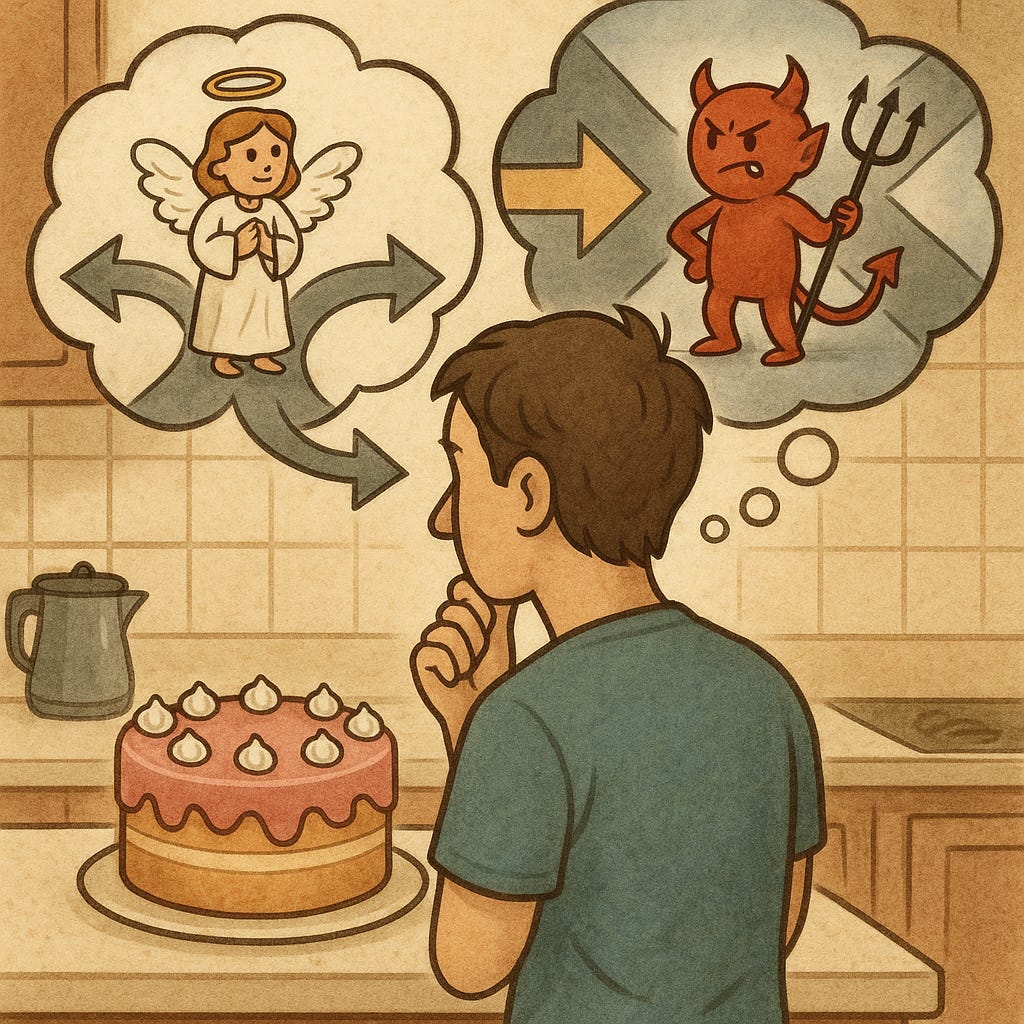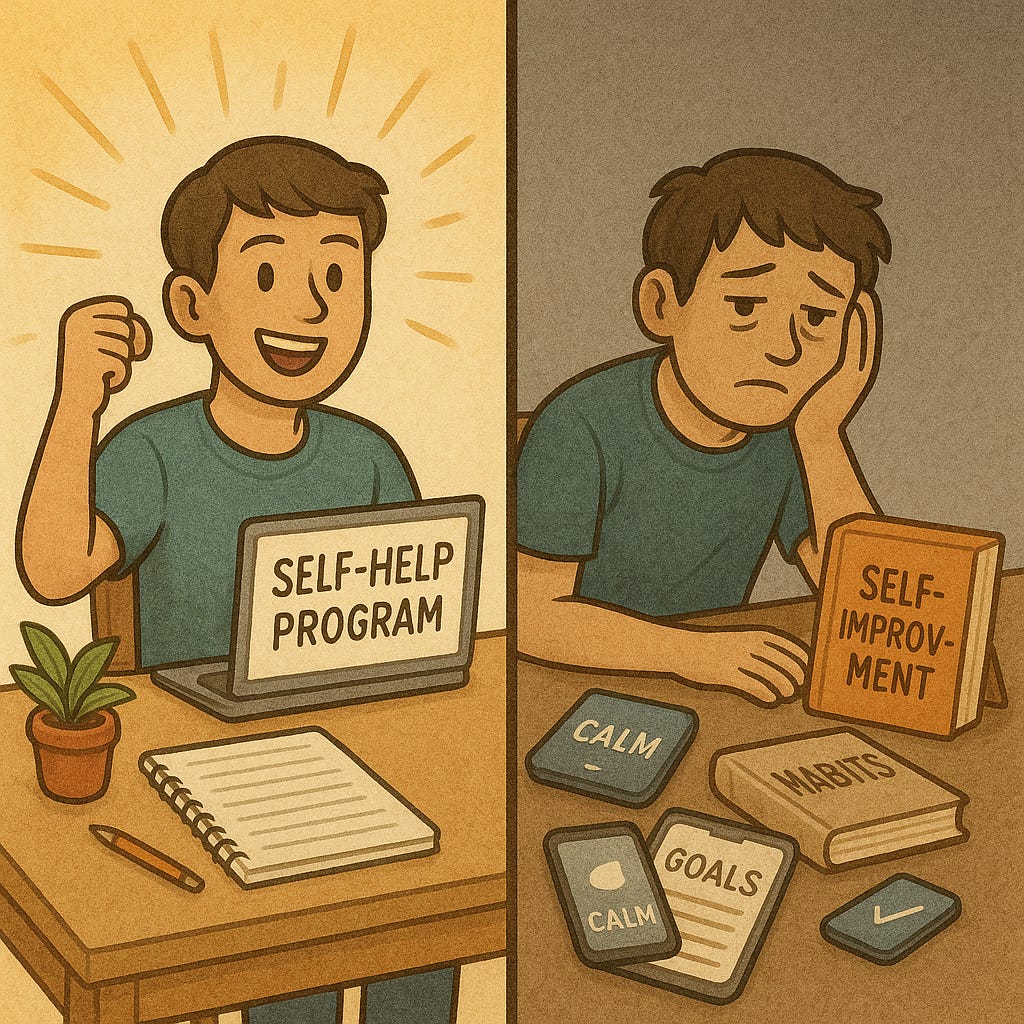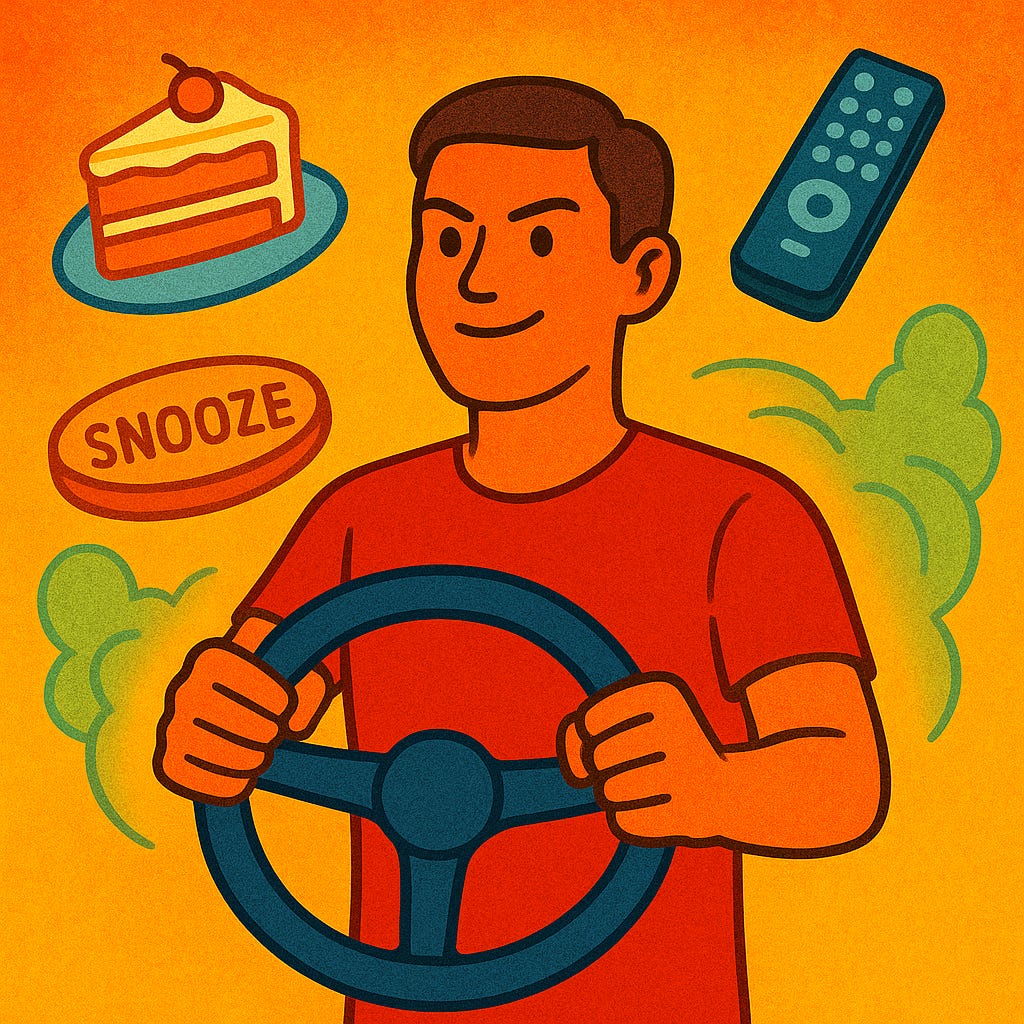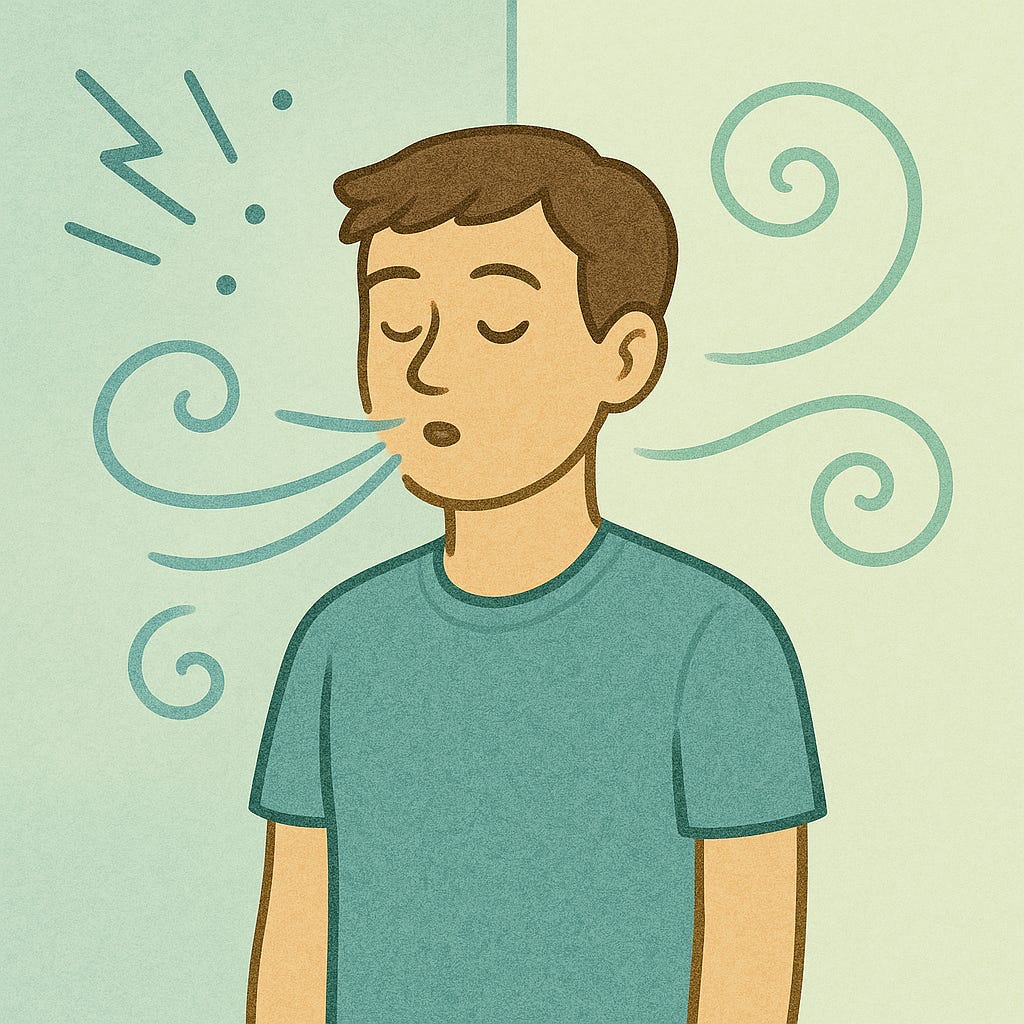The Self-Help Saboteur: Why You Keep Failing (And How to Finally Break the Cycle)
Why Most People Struggle With Self-Help Programs
For Those Who Keep Trying and Failing
Tired of the self-help merry-go-round? You know the drill. You buy the book, download the program, set ambitious goals. At first, everything clicks. You’re motivated, disciplined, unstoppable. Then something happens—a cake appears on your counter, Netflix calls your name, or exhaustion hits like a freight train—and your carefully constructed plan crumbles.
The enthusiasm vanishes. The drive disappears. Your new habits slip away as quickly as they arrived, leaving you wondering what the hell went wrong. Again.
If this sounds familiar, I’ve got news for you. Both good and bad.
Why Self-Help Failure Is Actually Good News
Here’s the truth nobody wants to hear: It’s your fault.
Yes, there were external factors working against you. Yes, life threw curveballs. Yes, that guru probably oversold their system. But at the end of the day, you made the decisions. You reached for that cookie. You skipped the workout. You abandoned the writing routine.
And here’s why this is actually the best news you’ll hear all day: If you’re the one making the decisions, that means you have the power.
When you bought that self-help book, that was your choice. When you reached for the cookie that derailed your diet and added 20 pounds to your frame, that was your decision too. Understanding this—really owning it—changes everything.
You get to decide what happens next.
What Most Self-Improvement Gurus Get Wrong
Most self-help systems fail because they don’t account for the most important variable: you. Your triggers, your environment, your biochemical reactions.
That chocolate cake sitting on your kitchen counter? It affects everyone differently. Some people can walk past it without a second thought. Others feel like a starving lion spotting a gazelle. Some have conditioned themselves not to want sweets, while others are fighting decades of neural pathways screaming “EAT THE CAKE!”
This shit ain’t easy.
Take weight loss. For most people, it requires going hungry for periods. Yes, you develop tolerance over time, but hunger is genuinely difficult. I’ve done 16-hour intermittent fasts, and I felt like that hungry lion I mentioned—ready to devour the first doughnut that crossed my path.
And guess what? The doughnut didn’t make it.
How I Took Back Control From Self-Sabotage
Here’s what happened when I ate that doughnut—and why it changed my entire relationship with “failure.”
I didn’t beat myself up. I didn’t spiral into guilt. I didn’t abandon my fasting routine.
Instead, I took 10 deep breaths, set a timer for 10 minutes, and made a deal with myself: “If I still want this doughnut after 10 minutes of focusing on something else, I’ll eat it. And it will be my deliberate choice.”
The timer went off. I ate the doughnut.
But here’s the key: I did it deliberately. I told myself, “This is okay. This is your decision. Enjoy it.” And I savored every single bite.
The next day, I went right back to my 16-hour fasting routine and healthy meals. No drama. No shame spiral. No abandoning the entire system because of one choice.
Why Traditional Self-Help Systems Fail You
Most self-help programs are either too rigid or too forgiving, and both approaches steal your power.
The rigid systems tell you to “push through,” “get more willpower,” or “go until you drop.” They treat any deviation as failure and any craving as weakness.
The overly forgiving systems blame external forces—society, big corporations, your circumstances—for your struggles. While these factors are real, this approach also strips away your agency.
Both are forms of control. Neither teaches you the most important skill: how to consciously choose your response to any situation.
Breaking Bad Habits Starts With Choice
Here’s the breakthrough that changes everything: You are always choosing.
Even when you don’t follow through on your original plan, you’re not failing—you’re exercising your power to choose differently than you originally intended.
Let’s say you’ve been crushing your keto diet for six days. Then you wake up to find a beautiful cake on your kitchen counter (thanks to your forgetful partner). Your mouth waters. Your stomach grumbles. Every neural pathway in your brain screams “EAT THE CAKE!”
Your initial biochemical reaction? You can’t control that. It’s hardwired and different for everyone.
But what happens next? That’s entirely up to you.
Two Simple Circuit Breakers for Overcoming Self-Sabotage
When you’re faced with maximum temptation—tired, hungry, or emotionally depleted—you need a circuit breaker. Here are two that work:
The Timer Method for Habit Control
Set a 10-minute timer and tell yourself: “I’m going to go to another room and focus on something else. If I still want this after 10 minutes, I’ll have it. It’s my choice.”
The 10-Breath Pause for Stress and Cravings
Take 10 actual deep breaths (not 10 seconds). When you’re depleted and facing temptation, your rational brain goes offline and your instant-gratification system takes over. Deep breathing literally changes your brain state, bringing your prefrontal cortex back online.
You’re not trying to talk yourself out of anything during these breaths. You’re just breathing and observing. Often by breath 7 or 8, the intensity naturally diminishes. You might still choose the tempting option, but now you’re choosing rather than being hijacked.
Redefining Failure in Habit Formation
Every time you “fail” in a traditional self-help system, it teaches you something. But more importantly, it might mean the system failed you, not the other way around.
Maybe you chose the wrong system. Maybe it needs modification. Maybe you need to design your own approach.
This is why starting small—really small—matters. Want to try intermittent fasting? Start by eating breakfast one hour later than usual. Next week, push it another hour. Keep adjusting until you find what works for your life, not someone else’s ideal.
Want better sleep? Go to bed 10 minutes earlier than last night. Get that foundation solid before you try waking up at 4:30 AM like some self-help commando.
Building Sustainable Habits: Start With the Foundation
Before you try another system, get three things right:
Good Food - Proper nutrition fuels everything else
Good Sleep - Your health literally depends on quality rest (your not a robot you probably need 7-8 hours, even more in some cases)
Exercise - But only after the first two are stable
If you’re not getting good food and sleep, you sure as hell won’t feel like exercising. Talk to your doctor about this triangle. Don’t attempt restrictive diets until you have this foundation under control.
The Power Is Yours
The next time you’re faced with temptation, remember: you’re not being tested by the universe. You’re not a victim of your circumstances. You’re not weak.
You’re a human being with the power to choose your response.
Give yourself permission to make that choice consciously. Whether you eat the cake or walk away, own the decision. Stop letting life happen to you.
Start choosing what happens next.
Ready to break the self-help cycle? The power was always yours—you just needed to remember how to use it.
Hashtags
#SelfHelpFailure #HabitFormation #Willpower #PersonalDevelopment #BehaviorChange #Mindfulness #SelfControl #OvercomingSelfSabotage #SustainableHabits #ChoiceAndAgency #HabitPsychology #SelfImprovement #BreakingBadHabits #ConsciousChoice #PersonalGrowth






